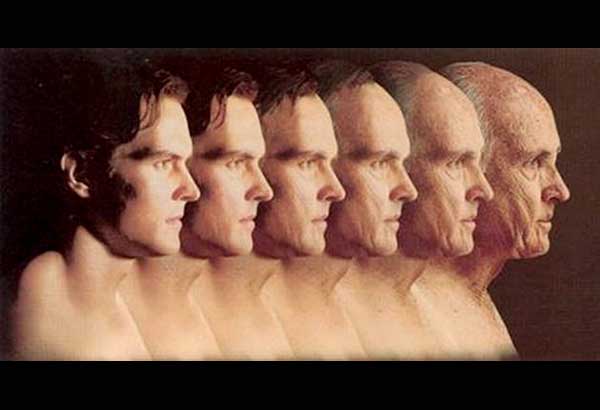How to delay facial aging


Aging, in almost all societies, is seen as something that one would not want to acquire, even though it’s a natural part of life. Why as a society are we ashamed to embrace aging when one, it’s an opportunity not afforded to everyone; two, with age comes wisdom, as the saying goes, maybe for most? But still, we want to delay or even deny the acceptance of old age as long as possible because being old is so unappealing in a culture that worships beautiful, youthful looks and athletic, young bodies. But we cannot deny the fact that we begin aging at birth, so aren’t there some preventive measures we can take to have a pleasurable old age? Actually, since I have been in practice for 27 years as an aesthetic surgeon and dermatologist, I have come to assume that most Filipino patients would come for treatment of their aging problems only if they are already reduced to shriveled frames and crepey arms. Which means that the process has degenerated and that their aging problems have now compounded.
Aging does not usually start with deep wrinkling and sagging — the end points of neglect or utter disregard for one’s skin care. Usually, skin aging shows up first as discoloration or blemishes that start to appear on the skin. This is usually accompanied by a change in texture, such as roughness and scaling, in a previously smooth skin. The skin starts to look dull, followed by the appearance of fine lines and some not-so-obvious indentations on the face because as we grow older, fats underneath the skin move down as the ligaments that are supposed to support and ensure that these fats stay in place lose their strength and elasticity and thus, loosen their grip on such structures. This allows changes in the positioning of fats and explains why we have the jowls. As the fat moves down, it pulls on the other structures, like the skin, and forms unwanted bulges on the sides of the chin, thus creating a wider lower third of the face and a sunken middle face. It also creates heaviness on the sides of the face, making the nasolabial (lines on sides of the nose) and melomental (vertical lines on the sides of the mouth) folds deeper. It also sometimes creates a concavity on the side of the cheeks just before the ear.
What you see are early signs of volume loss, mostly in the mid-face and chin. This is also due to a decline in collagen and hyaluronic acid production so that you may notice that your face is starting to look slimmer and more angular, which can make you look older and tired. By this time, fine temporary lines are replaced by deeper, permanent lines or furrows. Bone resorption is inevitable in aging. It is a process involving the breakdown of bone by specialized cells known as osteoclasts. It occurs on a continual level inside the body. The broken-down bone is replaced by new bone growth. But as people age, the rate of breakdown tends to exceed the rate of replacement, contributing to the aged appearance. Muscles also atrophy (progressive loss of muscle tissue referred to as sarcopenia).
All these contribute to the downward sloping of the skin called sagging. The upper and lower eyelids go down. The tip of the nose droops. The cheeks sink and begin to transform a straight jawline to an angling jawline plus the chin shortens. But because of the advances in health and well-being awareness, together with the dawn of new technology in the world of aesthetics, men and women facing the onslaught of middle age are now armed with an arsenal of age-fighting implements. So my advice is for people out there to start their beauty regimen as early as age 25 by protecting it against harsh chemicals starting from soaps that they use. Choosing the right kind of cleansers for your type of skin is essential. Applying moisturizer if your skin is dry and using a toner if it is oily is a big plus at this age. Photoaging from UV radiation exposure is the primary cause of extrinsic aging (aging caused by external factors) and therefore is largely preventable so using sunscreen is also helpful at this age. By the third decade, one would need a daily dose of antioxidants, which is one’s free radical defense.
At this point in time, there is a need for volumizing, plumping, muscle-relaxing peptides to restore youth and volume, limiting contractions of muscles to allow greater repair and restoration of these structures. Probiotic peptides would also greatly help in improving skin clarity, combating dryness, and enhancing anti-aging effects. Botulinum toxin injections at this age would prevent fine lines from becoming deep furrows later on. And those beginning nasty folds on the side of the nose and the mouth may also need a little plumping, courtesy of filler injections in small amounts. Pigmentations, like freckles and melasma, should be stopped right here at this age by incorporating skin creams with mild whitening components. By the fourth decade, a stronger antiaging cream should be added in the maintenance regimen, together with a peel and lightening facial cream.
At this point, laser for skin tightening may be necessary for immediate results and for a longer-lasting effect and, of course, sunblock. Some patients might need the addition of botox and filler injections to treat the whole face. At age 50, more consistency in one’s treatment procedures (the soltera platform is highly recommended) is a necessity to maintain a youthful appearance.
For patients with more severe problems in their late 50s, surgery might be the right choice. For those with double chins, whether at an early or later age, there is this new injectable drug that can get rid of the problem without much downtime and without surgery. This will make the lower two thirds of the face rejuvenated and, hence, more pleasing to the eyes.
* * *
For questions or inquiries, call 09174976261, 09998834802 or 263-4094, or email at gc_beltran@yahoo.com.



















